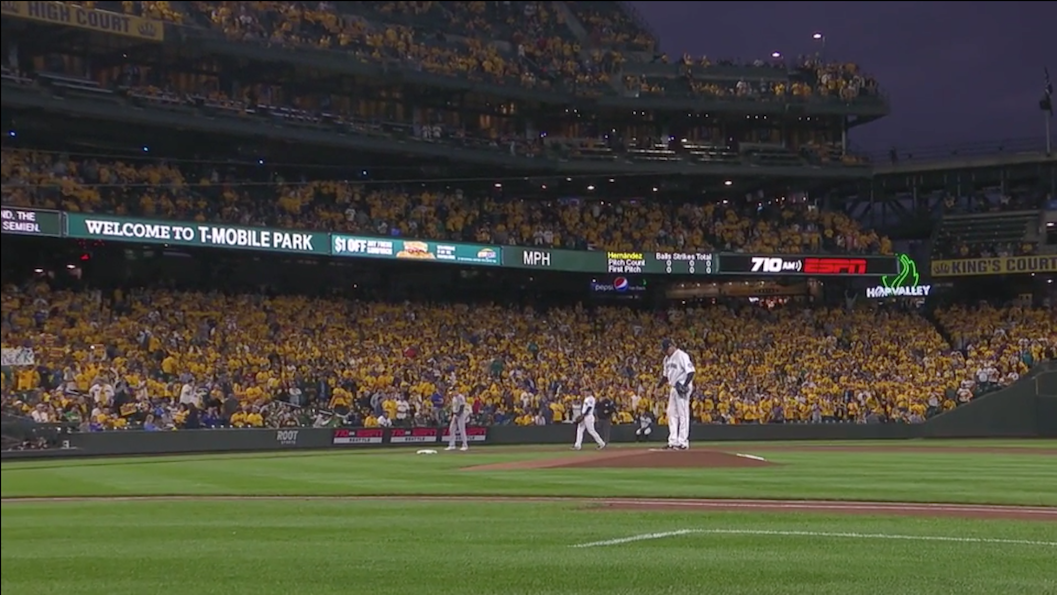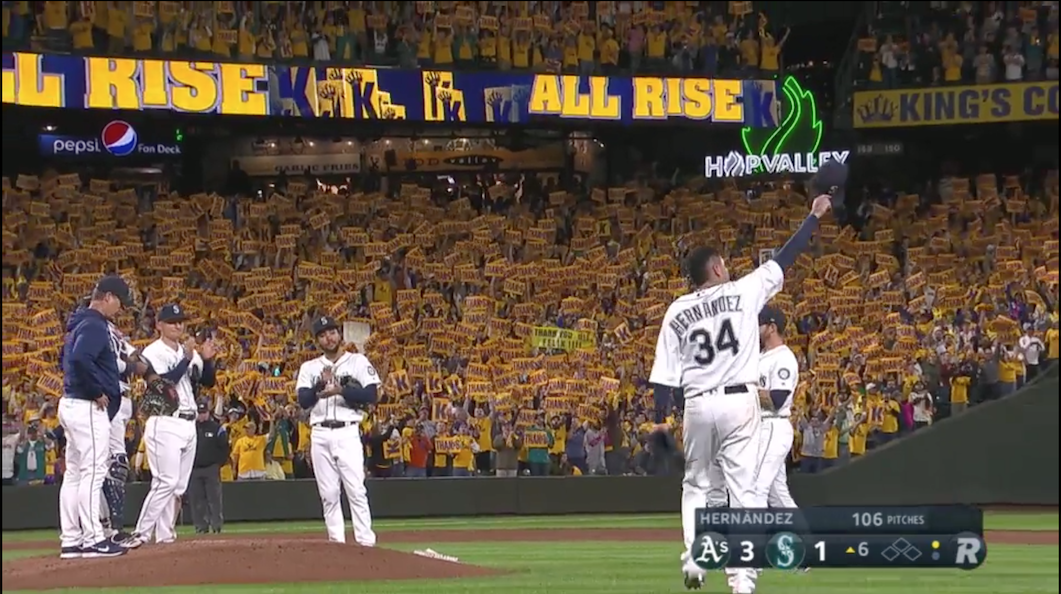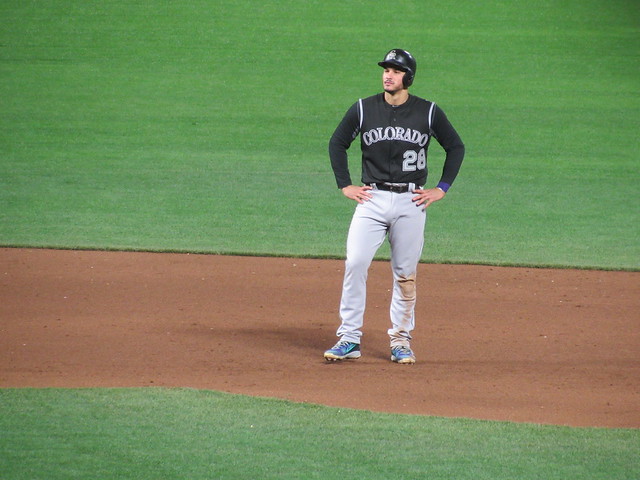The Yankees Win as Time Stands Still
Baseball is unpredictable, to a point. It’s a round bat and a round ball; anything can happen in 75 plate appearances. You’ve heard the platitudes. It’s not wild randomness, though. When the pitcher throws the ball to home plate, it won’t turn into a bouquet of flowers halfway there. Smashed line drives become hits most of the time. The Astros were always likely to win the AL West this year. The Dodgers outcome was similarly predictable.
In the same vein, we knew a lot about this Yankees-Twins series coming in. Maybe we didn’t know the outcome, but we could intuit a few themes. There would be dingers, more dingers than you can probably believe. The Twins hit the most single-season home runs by a team in baseball history this year, and the Yankees hit exactly one home run less than the Twins. There would be high-octane relief work; the Twins had the best bullpen FIP- in baseball while the Yankees were second, with both bullpens finishing in the top three in WAR.
And of course, the games seemed likely to go long. There’s a certain undefinable characteristic about Yankees playoff contests that leads to baseball in the hours. The team has long been at the forefront of the three true outcome trend in baseball, and in recent years they’ve spearheaded the transition to the modern, bullpen-heavy style of postseason play. Even ignoring that, however, the playoffs and the Yankees mix together to produce tension, and tension slows the game down.
Want an example? When Kyle Gibson walked Giancarlo Stanton in the bottom of the seventh inning, Cameron Maybin stepped in to pinch run. The game wasn’t over by any means, but the leverage index was a mere 0.24. Gibson walked Gleyber Torres on six pitches, with a stolen base in between. The sequence took what felt like an interminable three minutes and 40 seconds — signs checked and rechecked, long, focusing breaths, pickoff throws, and batting gloves readjusted until they fit perfectly.
But I’m getting ahead of myself. How did the ball end up in Gibson’s hands, with the Yankees up 7-4? Naturally, there were five home runs involved. It is 2019, after all. James Paxton, a great condor of a pitcher with arms the length of legs and legs the length of really long legs, is a fly ball pitcher in Yankee Stadium in 2019 — Jorge Polanco took him out of the park on the ninth pitch of the game.
Though Paxton regrouped and José Berríos danced through trouble in the first two innings, they weren’t fooling anyone. Nelson Cruz deposited a 98 mph fastball into the short right field porch for a home run in the top of the third, though Paxton’s greatest skill, his elite strikeout rate, meant that both blasts were solo home runs.
Berríos wasn’t so lucky. The Yankees scratched runs across in un-Yankee-like ways. Edwin Encarnación doubled home DJ LeMahieu, who had reached on a pop-up Luis Arraez couldn’t track down. Gleyber Torres plated two when the Twins booted a double play ball that would have ended the inning. Berríos was hardly sharp — he allowed four hits and three walks in just four innings of work. Still, he kept the ball in the park, something rarely seen in modern baseball, and got three runs for his troubles.
After the Twins managed a small-ball run against Paxton (Polanco again, singling home Arraez), Rocco Baldelli went new school. He pulled Berríos, who needed 88 pitches for his four innings, and went to the aforementioned lethal bullpen. Zack Littell had a 2.68 ERA this year — surely he would be up to the task.
Yeah, not so much. Littell walked Aaron Judge and hit Brett Gardner, with a wild pitch sprinkled in for good measure. Baldelli had seen enough, and he went to the big guns; Tyler Duffey, he of the 34% strikeout rate, 54 ERA-, and 67 FIP-. His strikeout prowess was as advertised, as he recorded all three of his outs via strikeout. His run prevention prowess, on the other hand, was worse; he allowed a walk and a double in the midst of those strikeouts, and the Yankees retook the lead.
Aaron Boone is no stranger to the reliever carousel — Paxton was out of the game in the top of the fifth, and a parade of relievers followed. Tommy Kahnle surrendered a home run, but the Yankees bullpen mostly did what the Twins’ equally excellent bullpen could not; it managed to keep the hits and walks from clustering together, as five walks and two hits, including the aforementioned home run, led to only a single run for Minnesota.
The Twins bullpen couldn’t keep up their end of the bargain. From 5-4, where the game stood after Duffey’s up-and-down inning and the home run Kahnle allowed, they couldn’t hold the line. There were two solo home runs, difficult to avoid in this day and age, but the clustering abandoned them too. But now I’m getting ahead of myself again. Let’s get back to the seventh and Kyle Gibson.
Back on the mound, Gibson regrouped and took a deep breath. He struck out Gary Sanchez on four pitches. Didi Gregorius was next, and it took eight pitches and five minutes and 51 seconds for Gibson to walk him. Gio Urshela didn’t get the message; he put the second pitch in play, a fly ball too shallow to score Maybin from third. It was all for naught, though. DJ LeMahieu lined a hanging slider into left field, plating all three runners, to turn the game from not very suspenseful to not suspenseful at all.
The rest of the game, of course, took nearly an hour anyway. There was no suspense left; no runs were scored. Brusdar Graterol poured 100 mph gasoline past Yankees hitters for two strikeouts in a perfect inning, and the odd couple of J.A. Happ and Aroldis Chapman closed things out for the Yankees. In some sense, the last part of the game was a breeze.
But in another sense, the end of the game matched the overall tenor of the evening. In the real world, time is linear. One minute it’s 6:01, and the next it’s 6:02, on and on until the day is over. In Yankee Stadium, however, it’s not like that. It’s a full count, forever and always, and time never passes. There are runners on, leads to protect at any cost, tension felt deep in a pitcher’s bones.
Aroldis Chapman walked a batter in the ninth, a play that could hardly have been less meaningful — the Yankees had a 99.9% win expectancy before the walk and a 99.7% expectancy afterwards. Even still, the cameras caught Aaron Boone in the dugout, unsubtly swearing. Chapman threw a few pitches to the next pitcher, stepped off the mound for a deep breath, and regrouped. He looked in for the sign, shook his head, and looked in again.
The game ended not long after that, with an uncharacteristic first-pitch pop up. It was hardly an unexpected conclusion, what with the Yankees having been up six runs for nearly an hour, but it still felt like a great accomplishment. The stands were half-empty, the Bronx faithful streaming out to the 4 train in a vain attempt to beat the rush, but the game went on unabated, and felt like it might never end. The natural state of playoff baseball in Yankee Stadium is to beat on, borne ceaselessly from stressor to stressor, and it felt shocking when the game was suddenly finished. Time of game: four hours, 17 minutes.



